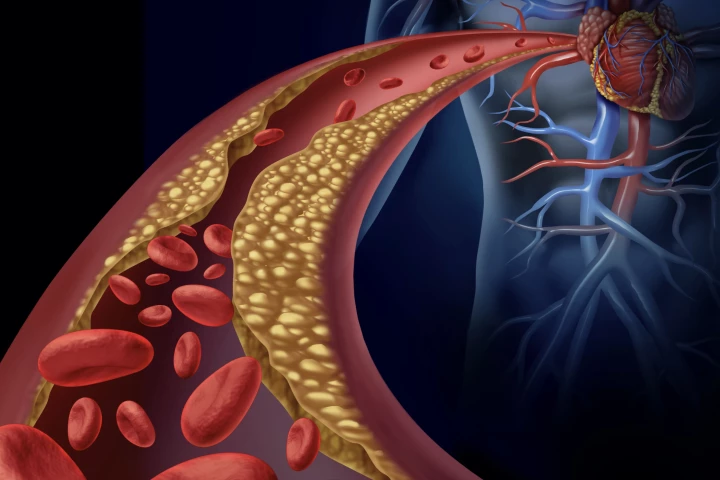Heart Disease
-
The shingles vaccine is up to 97% effective in preventing the condition caused by the herpes zoster virus, which inflames nerves and causes painful rashes. Now, a new metastudy says it may also be a big help in boosting cardiovascular health.
-
A new generation of nanoparticles can detect, shrink and clear plaques in the arteries, lowering inflammation and drawing out harmful cholesterol to be cycled via the liver. They offer a new way of diagnosing and fighting heart disease without drugs.
-
A huge international study has identified a weekly disturbance in one of the world’s most common sleep disorders, obstructive sleep apnea. Introducing “social apnea” – when the severity of the disorder jumps by nearly 20% on these specific nights.
-
For decades now, obesity has been defined by a number on a scale or where you land on the body mass index measure. But a groundbreaking study has found that it’s far more complex, finding 11 distinct biological types, each with their own health risks.
-
For the first time, scientists have uncovered a distinct biological process triggered in those who suffer from high levels of Monday anxiety, resulting in chronic stress. And it can lead to serious health problems if it's left unmanaged.
-
A new study has found that, for most of us, the fiber we eat can protect our heart health, lowering the risk of high blood pressure, heart disease or stroke by up to 20%. It’s more evidence showing that a healthy gut leads to a healthy heart.
-
A study examined how managing multiple heart disease risk factors reduced the likelihood of premature death faced by people with high blood pressure. Its findings highlight the need for a broad approach to preventing or treating hypertension.
-
Valvular heart disease (VHD) is a potentially fatal condition, yet it's hard to diagnose with a regular stethoscope. A possibly life-saving new stethoscope is claimed to be much better at the job, plus it can be used by just about anyone.
-
One of the ketogenic diet's major perceived drawbacks is an increase in LDL, or so-called bad cholesterol. A new study, though, says that this cholesterol spike doesn't fit the conventional science in terms of its disease-causing ability.
-
If someone is afflicted with heart disease, it's important that their cardiac activity be monitored as accurately as possible. An experimental new wearable device is designed to make that happen, by copying the body structure of the starfish.
-
Engineers at Illinois' Northwestern University have developed the tiniest pacemaker you'll ever see. It's several times smaller than a regular pacemaker, and it's designed for patients several times smaller than the average pacemaker user.
-
A man has lived for more than 100 days with a maglev heart beating inside his chest. In a landmark moment, he was discharged earlier this year, becoming the first person in the world to leave the hospital with the device embedded in his body.
Load More











